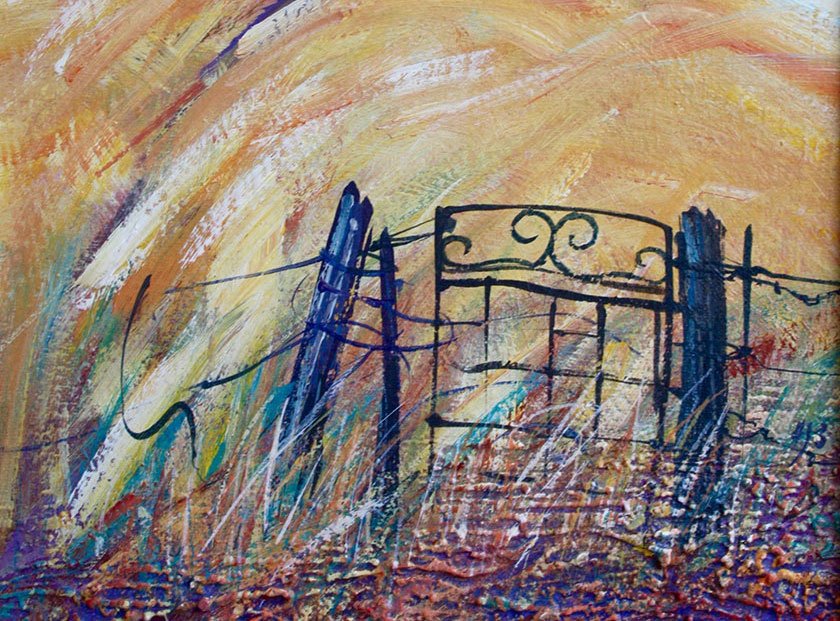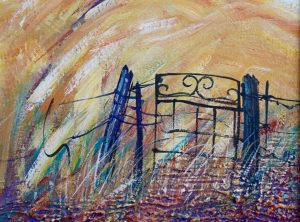
My Theory of Gatekeeping – how a bowl of soup changed the course of my life
Gatekeepers in the Local Church – Part 1

Artist, Helen Stacey
I never would have guessed that being two minutes late for lunch would send me down a rabbit hole spanning 40 years. As a social work researcher in the 1980’s, I was based at a Children’s Home observing the practice of Margaret, an experienced social worker. The staff were provided with hot soup each day on the strict condition that they registered in the kitchen before 11 am. We were running late and Margaret was anxious that we would miss out. Arriving, out of breath, Margaret paused at the kitchen door behind an invisible line. She caught the eye of the senior chef and humbly asked if we could have our meals even though we were late. The chef nodded his assent and only then did we enter the kitchen. I was stunned. He was obviously in charge of guarding his territory and Margaret was well aware of it. After that I noticed this behaviour in all kinds of settings throughout my research. And thus began my interest in gatekeepers and how to work with them
Eventually this research culminated in a 100,000 word Ph.D thesis entitled “Power and Influence in Social Work Practice: the Organizational Context”. As an academic social worker I was able to teach social work students how to navigate the power dynamics of their employing organisation. In 1996 I was ordained as a Uniting Church minister. I found to my astonishment that these same dynamics applied equally to the church. Thus my second research study focussed on Gatekeepers in the Local Church. I wanted to know how the church differs from secular human service organisations or indeed if it differs at all.
In 2015 and 2016 I conducted in depth interviews with ten individuals: five men and five women, eight of whom were ministers and two were lay people. One lay person worked for a para-church organisation which had very similar issues to a church
There are many similarities between the gatekeeping concepts developed in both studies. However, there are also some significant differences. In the second study with the church people I have included God in the theory, thus integrating theological and social science concepts. Swinton2 writes that it is important “we engage with our theology as a vital observational analytical tool that has a voice throughout the whole of the research process.”. Along similar lines, Phillips3 advocates the use of God as “a recognised actor in the analytical process.” So God is present in this theory of gatekeeping.
In this series of blogs I will be sharing the positive and negative ways in which gatekeepers in the local church behave. Strategies for dealing with and equipping gatekeepers will be explored.
Related Posts
Gatekeepers in the Local Church – Part 1 – Ministry Meets Social Science
References
VREUGDENHIL, E., “Power and Influence in Social Work Practice: The Organizational Context”, Ph.D. thesis, UNSW, School of Social Work, 1990. Available on line.
SWINTON, J., “Where is Your Church?” Moving toward a Hospitable and Sanctified Ethnography. In P. Ward (ed), Perspectives on Ecclesiology and Ethnography. Wm. B. Eerdmans, Grand Rapids Michigan, 2012. 83.
PHILLIPS, E., Charting the “Ethnographic Turn”: Theologians and the Study of Christian Congregations. In P. Ward, Perspectives,cit.106.


